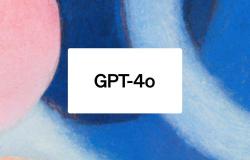
The Bank of Japan debated the possibility of raising short-term interest rates in June, with one policymaker calling for an increase without delay to address risks of inflation exceeding expectations , according to a summary of the meeting released Monday.
The discussion highlights the board’s growing awareness of rising inflationary pressure in the world’s third-largest economy, which could prompt the BOJ to discuss raising interest rates as soon as its next meeting of general policy on July 30 and 31.
Recent declines in the yen have raised the possibility of an upward revision to the BOJ’s inflation forecast, meaning the appropriate level of its policy rate could be raised, a member said at the policy meeting general on June 13 and 14.
“The BOJ should continue to closely monitor the data ahead of the next monetary policy meeting in July as risks of rising prices have become “more noticeable,” another notice said. “If it deems it appropriate, the BOJ should raise its key rate without too much delay.
The central bank must consider whether further rate hikes are necessary because inflation could exceed its forecasts if businesses renew their efforts to pass on recent cost increases, according to a third view.
Some members of the board of directors, made up of nine people, were, however, more cautious about an imminent increase in rates, believing that it is necessary to check whether the increase in wages will make it possible to lift consumption out of the slump, as the shows the summary.
At the June meeting, the BOJ kept short-term rates in a range of 0-0.1%, but decided to announce a detailed plan next month to reduce its balance sheet by $5 trillion , a sign that it is gradually moving towards a normalization of its monetary policy.
With inflation having exceeded its 2% target for two years, the BOJ has also hinted that it will raise short-term rates to levels that neither cool nor overheat the economy, which analysts say will would be between 1 and 2%.
Many market participants expect the BOJ to raise rates again later this year, although they are divided on whether the hike could come as soon as July or later during this year.
Japan’s core inflation reached 2.5% in May, accelerating from 2.2% the previous month, largely due to higher energy taxes.
The weakness of the yen complicates the BOJ’s policy. Although it helps keep inflation above its 2% target, rising prices of imported goods have hurt consumption by increasing the cost of living for households.
The dollar briefly hit 159.62 yen on Friday, not far from the 34-year low of 160.245 reached on April 29, which prompted Japan to intervene in the market. It remained at 159.87 yen on Monday in Asia.
“Monetary policy is carried out on the basis of the BOJ’s assessment of trend inflation and wage developments, and not on short-term developments in the foreign exchange market,” said an opinion, brushing aside the opinion of some market participants that the bank could raise rates soon in order to slow the fall of the yen.





